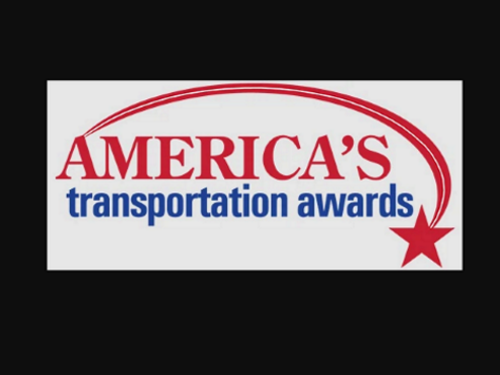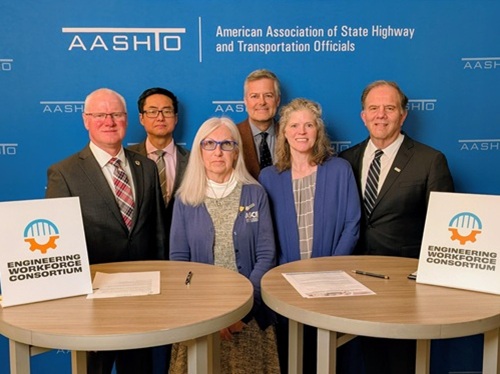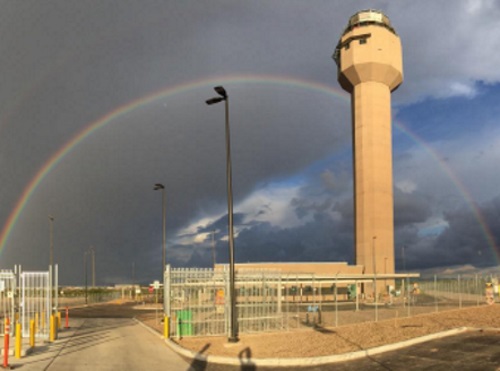The Federal Aviation Administration and the Federal Railroad Administration launched broad “net-zero” greenhouse gas (GHG) emission reduction efforts for their respective industries on April 22 to celebrate Earth Day.
[Above image via the FAA]
FAA and U.S. airports initiated an overarching “Airport Climate Challenge” to help achieve the Biden administration’s goal of net-zero emissions by 2050. Airports can take advantage of several FAA funding programs to meet this goal, including grants for low- or zero-emissions vehicles, renewable energy production, energy assessments and other efforts.

Airports Council International-North America and Airport Consultants Council will continue to support airports using FAA programs and funding. Airports can reduce greenhouse gas emissions through the following existing programs:
- Voluntary Airport Low Emissions Program– grant funding to implement clean technology projects that improve airport air quality.
- Zero Emissions Vehicle (ZEV) Program–grant funding to acquire zero-emission vehicles and associated infrastructure.
- Airport Sustainability Planning Program– grant funding for eligible airports to develop comprehensive sustainability plans.
The FAA also plans to develop a tool for airports to voluntarily estimate, track and report on the emissions reduction achieved when implementing projects supported by the airport programs.
In November, the U.S. released its first-ever comprehensive Aviation Climate Action Plan to achieve net-zero emissions by 2050. Earlier in 2021, the FAA announced more than $100 million in matching grants to increase aircraft efficiency, reduce noise and aircraft emissions, and develop and implement new software to reduce taxi delays.
The White House also announced its Sustainable Aviation Fuel Grand Challenge, a government-wide initiative designed to catalyze the production of at least three billion gallons per year by 2030.

Meanwhile, FRA launched a “Climate Challenge” that seeks the participation of national rail network owners and operators as well as rail equipment manufacturers in an industry-wide effort to reach net-zero GHG emissions by 2050.
FRA said its Climate Challenge builds on the strengths of rail transportation by encouraging the rail industry to decarbonize its operations, which will ensure that rail continues to be a model of sustainability and resiliency well into the future.
FRA will highlight those companies that meet or beat its challenge and support the reduction of transportation emissions by expanding access to rail transport, while collaborating with the rail industry to research and develop more renewable energy sources.
In order to leverage every opportunity to combat climate change, FRA is also working with the Environmental Protection Agency and its SmartWay program, which emphasizes supply chain sustainability by helping freight transportation companies measure, benchmark, and improve their energy efficiency.
 Nation
Nation
Entries Sought for 2026 America’s Transportation Awards
February 27, 2026 Nation
Nation

